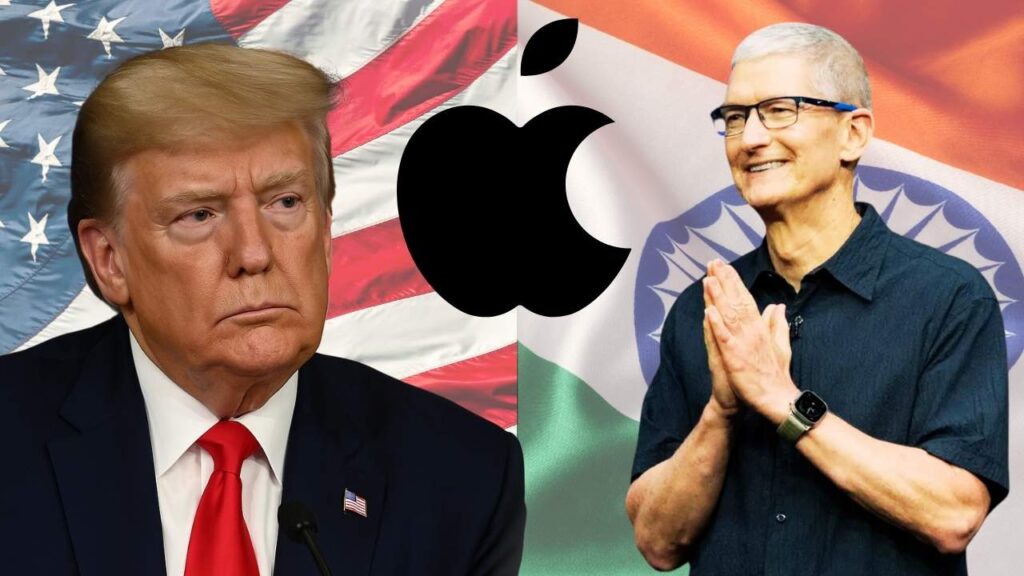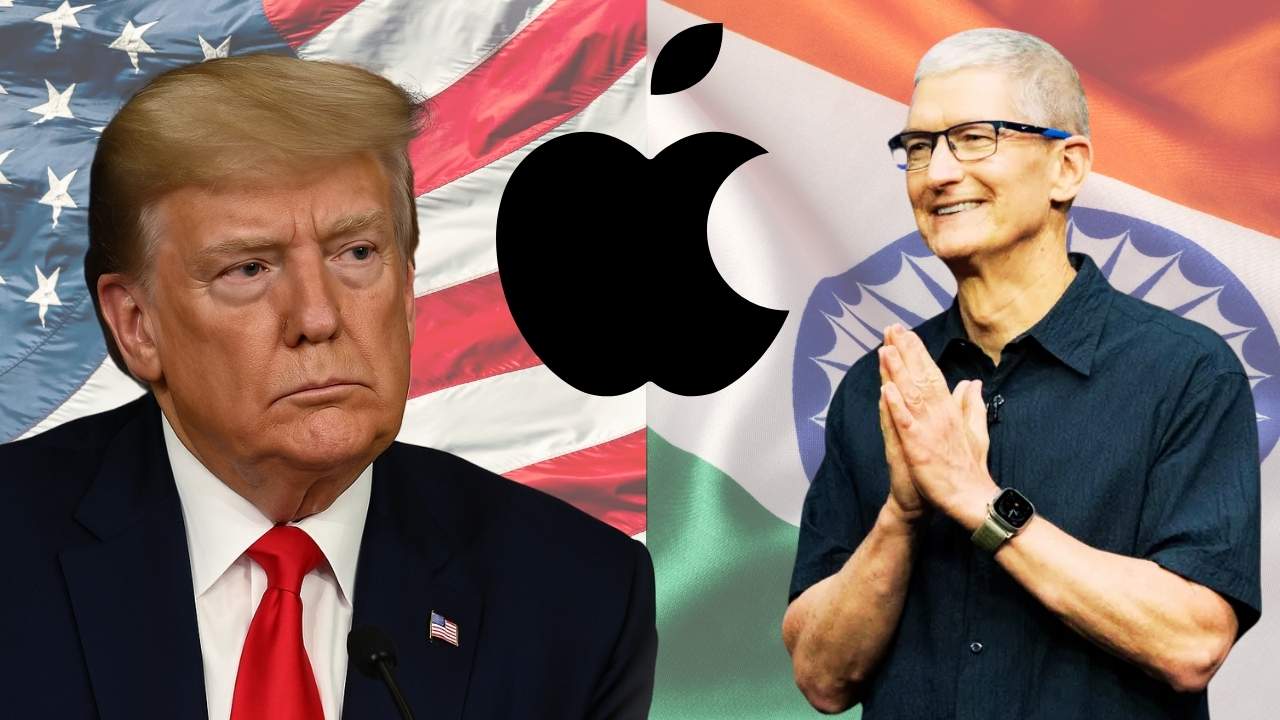In a surprising turn, U.S. President Donald Trump has publicly criticized Apple CEO Tim Cook for expanding manufacturing operations in India. Speaking at a business event in Qatar, Trump expressed discontent over Apple’s growing production footprint in India, urging the tech giant to instead ramp up manufacturing in the United States. However, despite Trump’s remarks, Apple remains committed to its India investment strategy, signaling confidence in the country’s long-term manufacturing potential. This situation raises questions about Trump on Apple and its implications for U.S. manufacturing.
Trump’s comments come at a time when Apple is rapidly expanding its India operations. Recently, India has become central to Apple’s diversification strategy, especially as trade tensions between the U.S. and China have escalated. In fact, Apple has already begun producing its latest iPhone models in India almost simultaneously with China—an unprecedented move that underscores India’s rising importance in Apple’s global supply chain, further complicating the narrative of Trump on Apple.
Table of Contents
Why Is Apple Betting Big on India?
Apple’s investment in India is not a reactionary move but part of a well-calibrated strategy to diversify beyond China, reduce geopolitical risks, and tap into India’s cost-effective manufacturing ecosystem. The company has already created over 150,000 direct jobs and another estimated 300,000 indirect jobs through its suppliers and partners such as Foxconn, Tata Electronics, and Pegatron. Foxconn alone has invested $1.6 billion in Tamil Nadu and Karnataka and is considering an additional $1 billion to set up display module facilities.
Beyond employment, India has become an export hub for Apple. In the 12 months leading up to March 2025, Apple assembled iPhones worth $22 billion in India, marking a 60% year-over-year growth. Nearly 20% of Apple’s global iPhone output now originates from India—approximately 40 million units annually. This surge in local manufacturing has not only strengthened India’s position in global tech manufacturing but also helped Apple avoid steep import duties of up to 20%, keeping prices relatively lower for Indian consumers.
Hot News: Singapore Covid-19 Cases Surge by 28% – What’s Ahead?
Comments of Trump on Apple: Nationalism or Economic Strategy?
Trump’s message to Apple was clear: “Don’t build in India, build in the U.S.” Citing his past support for Apple during their years of manufacturing in China, Trump emphasized that America now expects Apple to return the favor by bringing jobs home. He framed this demand within the larger narrative of economic nationalism, aligning it with his “America First” doctrine.
While such sentiments may resonate with a domestic audience, the economic feasibility of shifting iPhone production to the U.S. remains questionable. Analysts estimate that manufacturing an iPhone in the U.S. could raise its price to $3,000—three times the current cost. Bank of America warns that simply accounting for U.S. labor costs could increase iPhone prices by 25%. These numbers pose a significant challenge not only to Apple’s margins but also to American consumers, who may not be willing to pay such steep prices.
Will Apple Pull Out of India?
Despite Trump’s strong words, both Indian officials and Apple executives have confirmed that the company’s investment plans in India remain unchanged. Senior Indian government officials stated they have spoken with key stakeholders, and all projects are proceeding as scheduled. Apple, too, has reassured the government that India will continue to play a pivotal role in its manufacturing roadmap.

Industry experts agree that Apple is unlikely to reverse course. According to Prashant Girbane, Director General of the Mahratta Chamber of Commerce, shifting manufacturing from India to the U.S. would not only raise costs but also contradict Apple’s strategy to reduce dependency on China. “This move is not about moving away from the U.S. to India—it’s about diversifying away from China,” Girbane noted.
Indeed, India’s value proposition goes beyond just cheap labor. The country’s Production Linked Incentive (PLI) scheme has provided substantial subsidies to Apple’s contract manufacturers—about ₹6,600 crore across three years. The infrastructure, government support, and skilled workforce make India a compelling destination for long-term investments in electronics manufacturing.
The Global Impact of Disruption
If Apple were to scale down production in India due to political pressure, the consequences would be widespread. India could face massive job losses, diminished tech exports, and a setback in its ambition to become a global electronics hub. On the other hand, consumers worldwide, especially in price-sensitive markets, could see sharp spikes in iPhone prices.
Furthermore, halting or reversing Apple’s India expansion would send a negative signal to other multinational companies eyeing India as a manufacturing alternative to China. It would weaken the momentum of the “Make in India” initiative and reduce India’s attractiveness as a reliable global manufacturing partner.
A Wake-Up Call for India?
Interestingly, Trump’s remarks have sparked a broader debate. Capitalmind CEO Deepak Shenoy echoed Trump’s nationalistic approach, stating that India too should encourage its manufacturers to build locally instead of relying on Chinese supply chains. “Every country’s leaders want jobs for their own people,” Shenoy wrote, suggesting that Trump’s stance could serve as a model for India’s own manufacturing policy.
While trade relations between the U.S. and China appear to be improving with new tariff deals, Indian policymakers are confident that Apple’s India push predates the tariff war. The government believes the foundation for Apple’s presence in India is strong enough to weather such political fluctuations.
Final Remarks
Trump’s latest salvo against Apple’s India plans may have reignited a political debate, but it is unlikely to derail Apple’s long-term strategy. The economics of global manufacturing, driven by cost, scalability, and diversification, favor India. While nationalism may guide political rhetoric, business decisions ultimately rest on profitability—and in this equation, India holds the upper hand.
Related Sources: India Today, Indian Express, ET, Mint

